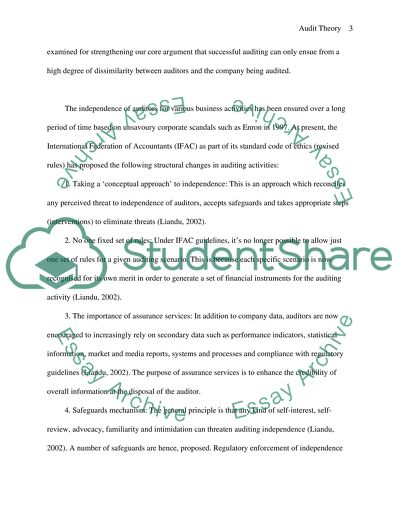Cite this document
(Audit Theory and Practice Essay Example | Topics and Well Written Essays - 1500 words, n.d.)
Audit Theory and Practice Essay Example | Topics and Well Written Essays - 1500 words. Retrieved from https://studentshare.org/finance-accounting/1533001-audit-theory-and-practice
Audit Theory and Practice Essay Example | Topics and Well Written Essays - 1500 words. Retrieved from https://studentshare.org/finance-accounting/1533001-audit-theory-and-practice
(Audit Theory and Practice Essay Example | Topics and Well Written Essays - 1500 Words)
Audit Theory and Practice Essay Example | Topics and Well Written Essays - 1500 Words. https://studentshare.org/finance-accounting/1533001-audit-theory-and-practice.
Audit Theory and Practice Essay Example | Topics and Well Written Essays - 1500 Words. https://studentshare.org/finance-accounting/1533001-audit-theory-and-practice.
“Audit Theory and Practice Essay Example | Topics and Well Written Essays - 1500 Words”, n.d. https://studentshare.org/finance-accounting/1533001-audit-theory-and-practice.


